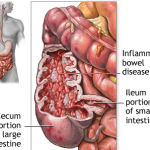
Dr. Maxwell Nartey
Professor of Symptometric Science, American School of Symptometry, NFP
World Center for Health Education & Scientific Enlightenment
Why is a person gassy? Why is flatulence sometimes smelly and disgusting, and why is it that sometimes, flatulence does not smell? Also, why is a person bloated? To answer these questions, I will discuss the gallbladder, the break down process, and the large intestine.
The gallbladder produces and squeezes bile into the duodenum. The question is, what is bile made of, and is the person providing their gallbladder with the materials to produce high-quality bile salts?
The textbook on anatomy and physiology does not specify how bile is produced. It is Symptometry which, after several experiments, figured out the materials with which the gallbladder produces high-quality bile. Food needs bile to digest it, but it does not produce bile.
Therefore, if bile salts are not of the highest quality, food will not be properly and thoroughly digested.
It is poor digestion that causes early fermentation. Poor or weak digestion is the process where, in addition to the low quality of the bile salts, the food enzymes are either being denatured or they are being extremely diluted because the person drinks water or sips alcohol while eating.
What are bile salts used for? They help enzymes digest fat and oil by reducing surface tension, and by breaking down the fat globules into tiny droplets. This allows the tiny droplets of fat to mix with water. The mixture then allows the enzyme called lipase from the pancreas and from the small intestine to thoroughly digest fat and oil in the food we ate.
After the fats and the oils have been thoroughly digested, they would penetrate the cells so that they can be used to produce essentials. Unfortunately, many individuals are not aware that this is what bile salts are used for. Let me now explain why people become gassy.
Underlying cause of gassiness
Drinking water while eating is a bad habit because bile that is supposed to be concentrated will be diluted instead. Also, drinking water while eating dilutes HCL (hydrochloric acid) that the stomach produces to facilitate digestion before the gallbladder squeezes bile into the duodenum. This is what water does. What about alcohol?
Alcohol denatures (damages) pepsin in the stomach; sucrase, maltase and lactase that the small intestine produces. It also denatures intestinal lipase that the small intestine produces; and trypsin, chymotrypsin and carboxypeptidase and pancreatic lipase that the pancreas produces.
Kinase and cyclin are the two enzymes that divide all our cells. Alcohol denatures them. Therefore, alcohol prevents many cells from dividing. Can diseases be cured if the cells cannot divide to replace themselves when they are too old? No, they cannot.
Let me go back to enzyme dilution and early fermentation.
Catabolism is the break down process. During catabolism, molecules like starch, sugars, proteins, oils and fat are broken down into their simpler forms. The break down process releases a lot of gases into the digestive system, and our colon bacteria are supposed to produce acids to break up these gases.
Therefore, a person who dilutes their enzymes or denatures them, will cause the kind of early fermentation that allows the gases to remain in their digestive system.
The gases that are released include: hydrogen, nitrogen, sulfur, phosphorus, chlorine, carbon, sulfur dioxide, and oxygen. Our colon bacteria will combine one atom of carbon with four atoms of hydrogen to produce methane gas.
What is extremely interesting about our colon bacteria is, they produce methane gas, but if they have the raw materials, they will also produce different acids to break up methane. Methane does not smell because the gases that make up methane (carbon and hydrogen) do not smell.
What do gases do?
They build pressure, and there are a lot of forces in water pressure, gas pressure, blood pressure, etc.
The forces in pressure will push a few gases upwards and some gases downwards.
The gases that are pushed upwards will cause burping, belching, hiccupping, or chest pain. The gases that are pushed downwards will cause occasional flatulence, gas pain, or excessive flatulence.
If sulfur happens to be among the gases that are pushed upwards, the person’s breath will stink. This is one of the causes of halitosis (bad breath) where, even after brushing the teeth, the person’s breath still stinks. Chewing gum, or sucking mint and candy, will only mask halitosis.
If sulfur escapes through the skin, the person will have a terrible body odor. If it escapes through the armpit, armpit sweat will be awful. If it escapes through the vagina, the woman’s vaginal flatulence will be horrible. Finally, if sulfur escapes with stool, the person’s stool will smell more awful than usual. Is that all? No, there is more.
If gases cannot escape, or they cannot be broken up, they will cause rumbling, croaking, etc. in the ascending, transverse or descending colon. Also, they may cause bowel pain, and the inability to fasten one’s belt.
Sulfur and carbon are in all our foods, but there are more sulfur, hydrogen and carbon atoms in beans and in peas than in other foods. It is our colon bacteria that produce acids to break up gases, but if they cannot, the person will be gassy. This is why it is not normal for a person to be gassy.
Antibiotics and probiotics
Antibiotics wipe out most of the colon bacteria. Therefore, if a person cannot have colon bacteria to produce the acids that break up gases, they will be gassy.
Can probiotics help? Probiotics are not created equally. There are colon bacteria that produce the three acids that break up gasses (lithocholic acid, deoxycholic acid and ursodeoxycholic acid), and colon bacteria that do not produce these acids. Therefore, if the person buys the wrong probiotics, they will still be gassy.
What causes bloating?
If there is not enough pressure to push a few gases upwards or downwards, gases will be stuck in the midsection of the body. It is the gases that are stuck in a person’s midsection that will cause a distended abdomen; abdominal pain, abdominal discomfort, and bloating.
People who have Crohn’s disease do also complain of bloating, and this is because they cannot digest their foods very well.
Bloating is not a disease. It is just the price a person pays for not changing their bad eating habit.
Passing clean flatulence a few times a day, or at night, is perfectly normal because of catabolism, but passing smelly gas indicates time to sit on the toilet, or the person has a bad eating habit. Egg eaters tend to pass extremely smelly and disgusting gas.
© Copyright 2021, The American School of Symptometry, NFP. No part of this publication may be reproduced or transmitted in any form or by any means, electronic or mechanical, including photocopying, recording, or by any information storage and retrieval system without the written permission of The American School of Symptometry, NFP. Library of Congress copyright number Txu 1-621-370, Washington D.C.


 Previous Post
Previous Post Next Post
Next Post